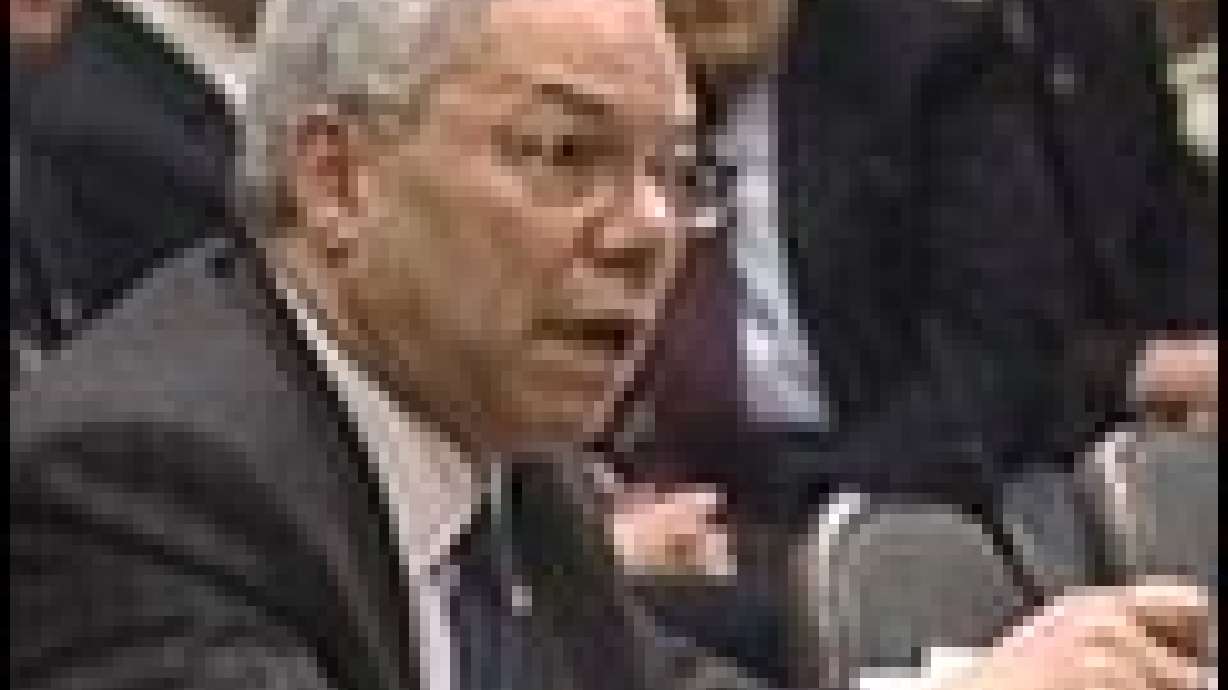Estimated read time: 4-5 minutes
This archived news story is available only for your personal, non-commercial use. Information in the story may be outdated or superseded by additional information. Reading or replaying the story in its archived form does not constitute a republication of the story.
WASHINGTON (AP) -- Secretary of State Colin Powell, visiting the Embassy of Thailand Thursday to formally extend condolences to the victims of the Asian and African tsunamis, vowed that the Bush administration will follow through on promises of substantial financial assistance.
"You can be sure that the president is determined to do what is necessary to deal with this challenge," he said. "We're working very closely with the international community."
Powell was making a round of visits to the embassies of nations ravaged by the disaster as Rep. Henry J. Hyde, chairman of the House International Relations Committee, said that he was drafting legislation to assist victims and planned to introduce it early next year.
"The infrastructure of daily life is simply gone," said Hyde, R-Ill.
A congressional delegation headed by Rep. Jim Leach, R-Iowa, a former U.S. foreign service officer, is scheduled to visit Thailand and Sri Lanka next week.
During his visit to the Thai embassy, Powell spoke anew of the death and destruction spawned by the Indian Ocean earthquake and tsunamis. He told reporters that in the last 24 hours, a half-dozen planes from the U.S. Agency for International Development have landed or are en route to nations affected by the tsunamis.
Powell also alluded to the roughly $35 million in emergency aid already committed as "just a beginning."
"It's going to take a lot more," he said. "This is the time to make sure that we get a good needs assessment." The death toll there has reached more than 114,000.
At the Embassy of Indonesia later, Powell wrote a message in a condolence book, expressing the support and sympathy of the American people. He said he had never seen such a tragedy and said that it was "time for us to join together in solidarity."
On Wednesday, Andrew Natsios, head of the development agency, told reporters: "Our efforts are focused, with the rest of the international community, on water and sanitation, because that is the greatest risk to people's lives."
Water and sewage systems were inundated by the enormous surge of water that hit coastal areas of 12 countries on Sunday following an earthquake deep in the Indian Ocean. Debris and corpses are also a health hazard.
"People are drinking sewage water," Natsios said at a State Department briefing. "That will substantially increase the risk of communicable disease and diarrheal disease, which could kill many people in epidemics, if they get out of control."
President Bush assembled a four-nation coalition to organize humanitarian relief, and promised that the United States would help bankroll long-term rebuilding.
"It's just beyond our comprehension to think about how many lives have been lost," Bush said after emerging from a holiday vacation at his Texas ranch to make his first comments on the disaster.
Marc Grossman, undersecretary of state, will lead a U.S. task force to coordinate the American response and urge other nations to assist in relief efforts. He participated in a 40-minute conference call Wednesday night with senior Japanese, Australian and Indian officials.
State Department spokesman Noel Clay said they agreed to try to avoid duplicating efforts, by each other and the United Nations, to help the victims.
U.S. embassy officials continued to hunt for 2,000 to 3,000 Americans who remain unaccounted for in the coastal regions hit by the tsunamis, and asked travelers to check in with families and U.S. diplomatic posts. At least 12 Americans were known dead from Sunday's quake and subsequent tsunamis that struck a dozen countries from Thailand to Somalia.
From airlifts of rice and water purifiers to the deployment of Marine humanitarian assistance teams and warships, the United States marshaled resources across the globe to augment its initial $35 million aid package and make sure the hardest hit locations got the short-term help they requested.
Bush said he phoned the leaders of stricken countries to solicit specific needs and assure them the initial aid package "is only the beginning of our help." He also laid the foundation for a long-term international recovery plan by forming the coalition with Japan, Australia and India and inviting other nations to join.
Both the president and officials in Washington touted the breadth of U.S. aid, ticking off figures they hoped would rebut comments by a U.N. official and others suggesting that the United States had been stingy or slow to react.
The president called the U.N. official's comments Monday "very misguided and ill informed." His State Department spokesman was more blunt: "We don't have anything to apologize for," Richard Boucher said.
(Copyright 2004 by The Associated Press. All Rights Reserved.)









